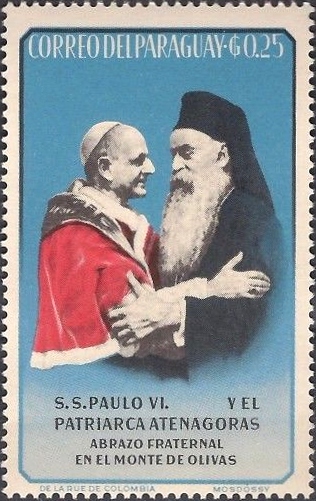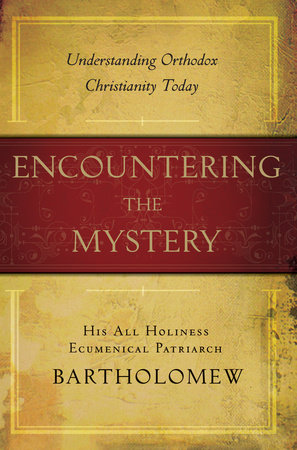Journey with the Orthodox: Biography of Ecumenical Patriarch Bartholomew reviewed by Harold D. Hunter
Pentecostals can also resonate with Chryssavgis’s description of Bartholomew’s take on ecumenism this way: “… he shuts the door to any caricature of Christian unity as sweepingly blending all Christian teachings into one or as superficially rendering everyone uniform. Dialogue and reconciliation do not imply parity among denominations or unity as confessional adjustment. Nor again do they entail acquiescence to doctrinal relativism or resignation to denominational minimalism.”
Bartholomew’s support and engagement of other religion is authentic and well documented but Archdeacon Chryssavgis magnificently weaves together the most important threads for us. Chryssavgis tells us that Bartholomew falls back on the apophatic notion about the nature and being of God not being the exclusive domain of any one religion. In his own book Encountering the Mystery, Bartholomew invoked “The Spirit blows where it wills” to champion dialogue with various religions particularly the three linked to Abraham.
On the ecumenical front, there is much rich material in the book but I want to single out Bartholomew’s critical role with Roman Catholics as this reveals much about what goes to the heart of Orthodox ecumenism. In fact, no Orthodox dialogue receives more attention in this biography than the various forms of engagement with Roman Catholics with some little-known stories about Vatican II revealed.
A key point emerges in these pages when dealing in excoriating detail how these fascinating dramas played out. One cannot read this account without realizing that dialogue with the Vatican is supreme because it holds out the possibility of “full communion.” This point is highlighted in various ways such as pointing to the time during the first millennium when the churches were united but only in the 20th century were the mutual anathemas of the 11th Century revoked and that simultaneously by the Vatican and the Ecumenical Patriarchate. More specifically one would say that anathemas flowing from the Great Schism of 1054 were not resolved until 1965.
A snapshot of this dialogue of love is captured by pointing to a marble inscription written in Latin and Greek above the entrance to St. Peter’s Basilica in Rome which reads as follows: “For the reconciliation of full communion between the Orthodox and Roman Catholic Churches, there was a meeting of prayer in this basilica between Pope Paul VI and Patriarch Athenagoras on October 26, 1967 and between Pope John Paul II and Patriarch Demetrios I on December 6, 1987. To God alone is due honor and worship to the ages.”

Postage stamp from Paraguay commemorating the 1964 Jerusalem meeting of Pope Paul VI and Patriarch Athenagoras.
Image: Wikimedia Commons
Archdeacon Chryssavgis rightly points to the forward movement particularly set in motion by Ecumenical Patriarch Athenagoras. This is so momentous that Ecumenical Patriarch Bartholomew and Pope Francis celebrated the 50th anniversary of the historic 1964 Jerusalem event achieved by Ecumenical Patriarch Athenagoras with Pope Paul VI. Pope Francis and Ecumenical Patriarch Bartholomew commemorated this event in Jerusalem in 2014. Bartholomew has advanced relations with the Holy See to the point that he was on hand for the inauguration of Pope Francis on March 19, 2013. Seeking to right a significant wrong perpetuated by the Crusades, it was Bartholomew who in 2004 secured from Pope John Paul II the return of the relics of the most renowned archbishops of Constantinople – Saint Gregory the Theologian (329-389) and Saint John Chrysostom (347-407). I have venerated these saints when visiting the Patriarchal Church of St. George at the Phanar.
When Roman Catholic and Orthodox representatives together recite the Nicene-Constantinopolitan Creed, they revert to the original version of the fourth-century creed which means omitting the later Roman Catholic interpolation of filioque. Ecumenical Patriarch Bartholomew joined Pope Francis in jointly inviting Peres and Abbas, presidents of Israel and Palestine, to the Vatican in 2014. Yet again Russia comes into the picture particularly in relationship with the Uniate, or Eastern Catholic, churches specifically in the Ukraine. While, therefore, one may depict the differences as in decline, key ecumenical issues yet remain between Roman Catholics and Eastern Orthodox.
Category: Ministry, Winter 2017



